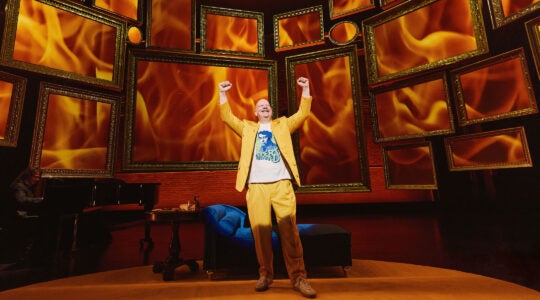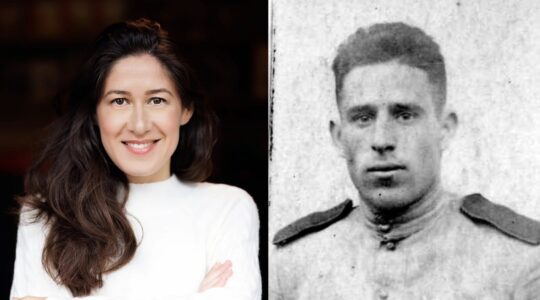The obvious question is, “Does the New York area really need another film festival?”
The not-so-obvious answer, given by Regina Gil, the founder of the Gold Coast International Film Festival, which opens its inaugural event on June 1, is an emphatic affirmative.
That is only to be expected.
Though she notes the existence of at least two significant festivals in Suffolk County — those in East Hampton and Stony Brook — she makes a strong case for her brainchild. It is, she says, the product of and response to a very specific set of geographic, demographic and artistic realities.
“This is Nassau County and, very specifically, the North Shore,” Gil says. “You have to understand that this may be a suburb, but the movers and shakers live out here.”
The hope is that they’ll support a festival in their own backyard, unlike the ones they ride into the city to see.
Secondly, there’s a reason they call it Long Island; Nassau and Suffolk counties stretch for nearly 150 miles. Would you drive from Manhattan to Albany, over 134 miles, to see a movie?
Of course, you might do it to see 40 movies in a period of four days, which is what the GCFF’s organizers are hoping, since they would love to attract New York film fans to make the mere 13-mile trek to Great Neck.
Given their target audiences, Gil knows that she has to offer an A-list menu of films to put viewers in theater seats.
“Their taste is very high standard, so [we] had to come out very strong,” she says. “We had to give them something to actually pay attention to.”
Mind you, Regina Gil is not a newcomer to arts programming or to the affluent area that gives the festival its name. She is the founder and executive director of the Great Neck Arts Center and, for the past 17 years, she has been running a weekly film series as part of the center’s programming. But she readily admits that putting in place a film festival that is going to show over 40 feature films in five neighboring towns over four days is a bit more ambitious.
“You’re not dealing locally any more,” she said. “You suddenly have lots of sponsors and each has their list of demands. It’s beyond the films; now it’s a business. And that’s the real education.”
So she didn’t attend to the task alone.
Perhaps her most important addition to the festival’s team was Sean McPhillips, the senior programmer and festival director, whose experience in the film industry includes a lengthy stay at Miramax Films, where he was Harvey Weinstein’s director of acquisitions. That job gave him first-hand experience in dealing with foreign filmmakers, and an extensive introduction to the international festival circuit. (It also gave him contact with Donna Dickman and L. Somi Roy, who have served as consultants for the festival.)
Wisely, Gil has left the programming of the festival pretty much in McPhillips’ hands.
“For a festival there are many audiences,” she says. “Sean wasn’t as familiar with the local community when he first got here, but he’s been programming the Furman series [the arts center’s weekly films] and has become more acquainted with our hometown audience.”
One of the major revelations for McPhillips has been the growth in maturity and quality of the Israeli film industry; given the large Jewish demographic of the area, he notes, that has been a fortuitous development.
“This area has a rich and diverse Jewish demographic — Sephardic, Iranian, Israeli — and we are hoping that our programming is rich enough to draw them all to the festival,” he says. “We have several Israeli films in the lineup that are very strong. I’m very impressed with ‘Naomi,’ [directed by Eitan Zur]. It starts out and you’re thinking, ‘Oh, they shot it digitally, it’s an intimate film, jealous older husband, beautiful young wife’ … and then it turns around completely in an unexpected way. I found myself laughing out loud.”
The festival will also screen “Infiltration,” by Dover Kosashvili, a darkly comic look at a platoon full of misfits in the 1950s-era IDF and one of the strongest films in this year’s Israel Film Festival, and Erez Laufer’s latest film, “Rafting to Bombay.”
How will Gil and McPhillips know they have a success on their hands? When can they start thinking about a second annual festival?
McPhillips, a self-described optimist, thinks they’ve reached the benchmark already.
“If the lineup of films and events hadn’t been so good and people weren’t interested…” he stops, then says, “I was in a room the other day with a group of 70 or 80 volunteers and the energy there was insane, people were very psyched. And I thought if we can get her word out like the energy level in this room. … Look, we’ve got 45 feature films, many of them already really well-reviewed; we’re opening the festival with an evening with Bruce Dern, and he’ll be talking about working with Alfred Hitchcock and Francis Ford Coppola; there’s a harbor party and screenings with the filmmakers and a master class with Bill Plympton [the brilliant animator]…”
He pauses for breath, and then quickly adds, “How many more things can you shove into four and a half days, and it’s only the first festival?”
Regina Gil is a bit more guarded.
“I will know when the smoke clears and we’ve had attendance,” she says. “This is not an academic exercise for us. We’re creating audiences; we’re pulling them away from their TV sets. We want them to interact, to talk with each other and the filmmakers. If they’re riding on the film buses we’re setting up and on the LIRR — if we have butts in the seats, I will consider it a success.”
The First Annual Gold Coast International Film Festival will run from June 1-5 in Great Neck, New Hyde Park, Manhasset, Port Washington and Roslyn. For information on the films and numerous special events go to http://goldcoastfilmfestival.org.
The New York Jewish Week brings you the stories behind the headlines, keeping you connected to Jewish life in New York. Help sustain the reporting you trust by donating today.




